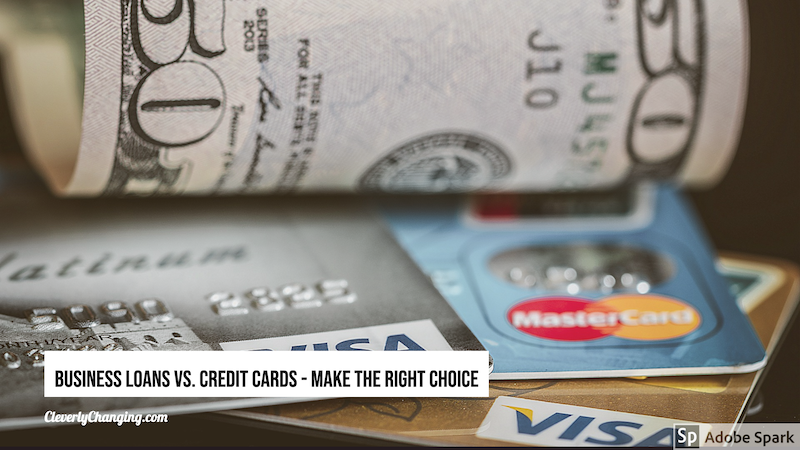The most popular methods of financing a business include business loans and credit cards. There are several factors that business owners need to consider when it comes to deciding whether they should or shouldn’t get a small-business loan or a business credit card to meet the financing needs of their project. These factors include how the business owner plans to use the proceeds, their credit score, and how strong their business finances are. If you are a business owner and you aren’t sure which financing method to go with, then here is a comparison, including the pros and cons of both options, to help ensure you make the right choice.
Pros of a Business Loan
If you require a high amount of money, then a loan is usually the better option. Small-business loans are ideal for owners looking to expand. This can be done through buying and renovating real estate, purchasing equipment, refinancing debt or financing inventory. Business loan solutions usually cost less than a credit card and there are also long repayment terms available. Compare your options at Become.co.
Cons of a Business Loan
The length of time it takes to get funding is one of the cons of a business loan. The time it takes to receive the loan depends solely on the lender. It can also be harder to qualify for a business loan compared to a credit card. You need to have good collateral and business or personal credit. You may need a down payment for larger loans.
Pros of a Credit Card
Just like a regular credit card, a business credit card can offer cash back and other rewards on purchases. Some companies offer 0% interest promotions. This means that if you pay off the loan in a certain time frame, you won’t owe any interest. Unlike a loan, you won’t require collateral for a credit card and you can build your business’s credit. It is also easier to track your business’s expenses.
Cons of a Credit Card
If you need a large amount of money, your credit could be negatively affected. Fees, such as late payment fees, annual fees and cash advance fees (to name a few) can be high and should be something you look out for. Interest rates are also something to look out for, as they aren’t set like a loan, so can change. Although collateral isn’t required, you may need a personal guarantee, which will make you personally liable for any debt that goes unpaid.
What is Best for You?
To summarize, small-business loans are the perfect choice for someone who is looking at refinancing an existing debt, purchasing equipment or real estate or making any type of large investment, because a loan provides a larger sum of money. On the other hand, a credit card is normally better for people who want to finance working capital and ongoing expenses. They are usually more flexible and you tend to only pay interest on the money you borrow.
Now it has all been laid out, hopefully your decision will be easier to make. You need to know what you want the money for before you make the commitment. With the right planning and organization, making the right choice should be clear.



